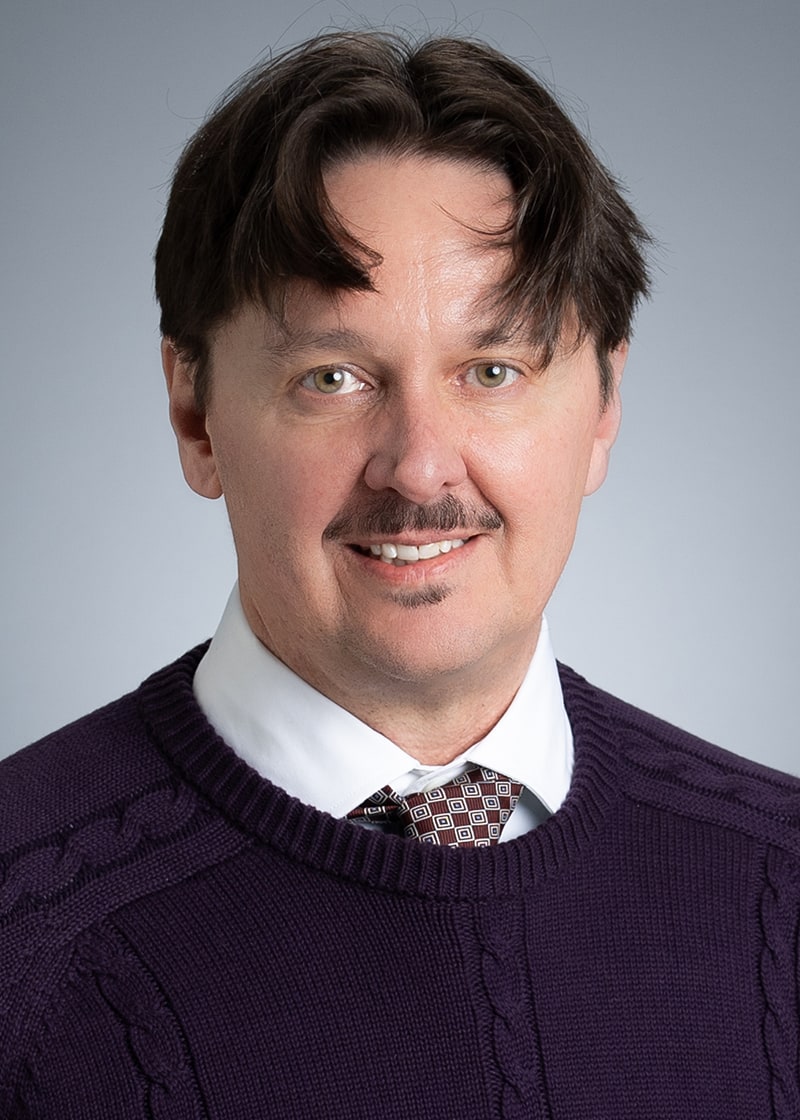September 2025
September 2025: Hale Thompson, PhD, MS, MA hthomps@uab.eduAssociate Professor, Health BehaviorWhat brought you to the UAB School of Public Health?
There were multiple factors that drew me to UAB School of Public Health. Mainly, the open rank position posted in the Department of Health Behavior with a unique focus was a real draw, as were the faculty here. The School of Public Health had also made a lasting impression on me from my early work in HIV prevention in the mid-aughts when our team at University of California San Francisco worked with the Centers for Disease Control and Prevention’s Dr. Charles Collins. Dr. Collins is a UAB School of Public Health alumnus, and I really admired his leadership at that time. Conducting research and teaching at a public R1 university in the Deep South was also tremendously appealing to me.
What is the broad focus of your research?
Broadly, I am an implementation scientist who prioritizes community or patient engagement depending on the setting. One facet of my research has been to develop and evaluate interventions built with biomedical informatics and/or machine learning techniques. My focus here at UAB remains fairly population- and condition-agnostic. Substance misuse, mental health, and HIV prevention have been throughlines in my research trajectory.
Where did you receive your training and degrees?
My PhD is from University of Illinois at Chicago where I also earned a graduate certificate at the College of Urban Planning and Public Policy in Community Development. I have a Master of Public Health in Epidemiology from University of Minnesota. In a past life, I was all-but-dissertation in sociology, but I think my more recent K12 training at Feinberg School of Medicine and Kellogg School of Management in learning health systems science was most helpful in leading me to a framework for conducting pragmatic, health equity research and team-based science within complex health systems.
What is the most exciting project you are currently working on?
I am a mentor on Dr. Will Bradford's Center for AIDS Research (CFAR) pilot, which is a retrospective study of the 1917 Clinic's patient data. The study is analyzing 13 years of health record data and will identify those factors associated with alcohol misuse as well as factors associated with HIV viral suppressions such as prescribed medications, like naltrexone, that mitigate that alcohol misuse. Dr. Bradford has assembled an exciting multidisciplinary team of scholars from across the university and health system, and this pilot has afforded me opportunities for additional collaborations.
What professional accomplishment are you most proud of so far in your career?
I don't think that I can point to one accomplishment that I am singularly most proud of. A critical survival mechanism for me has been to learn to appreciate failure - or at least knowing to sit with what might be considered "failure" and identify growth opportunities there. My colleague, friend, and mentor at Rush University Medical Center used to say how important it was to be able to take metaphorical hits or even "kicks to the teeth" and just keep going. That does not sound like the healthiest advice, ironically, but it is definitely advice for professional survival.
What is the coolest training or program you've been a part of, or your favorite conference you've attended?
I have had the privilege to attend many incredible training fellowships over the last 15 years. The "coolest" one was in 2012, early in my graduate studies. I attended a 10-day, NSF-funded, "Values in Design" workshop at University of California at Irvine School of Information and Computer Sciences, led by Dr. Geoff Bowker. Out of the 20 scholars, I had the least formal training in human-centered design, but I learned so much and loved working so intensively on the design challenge that was assigned to our team. The workshop culminated in a final demonstration of our prototype in a competition before a panel of judges. My team was not crowned the winner.
What kind of research would you like to be doing that you haven’t yet had the opportunity to do?
I am curious about the different health and social impacts of GLP-1 medications. They seem to be ubiquitous, and I do wonder about their efficacy and effectiveness in reducing alcohol or substance misuse.
If you weren’t in academia, what would your career be?
In my dreams, I would be an investigative journalist or an organic farmer. Since the field of the former is dying, and I lack the skills for the latter, the more realistic answer is that I would probably go into some version of community and affordable housing development and advocacy.
